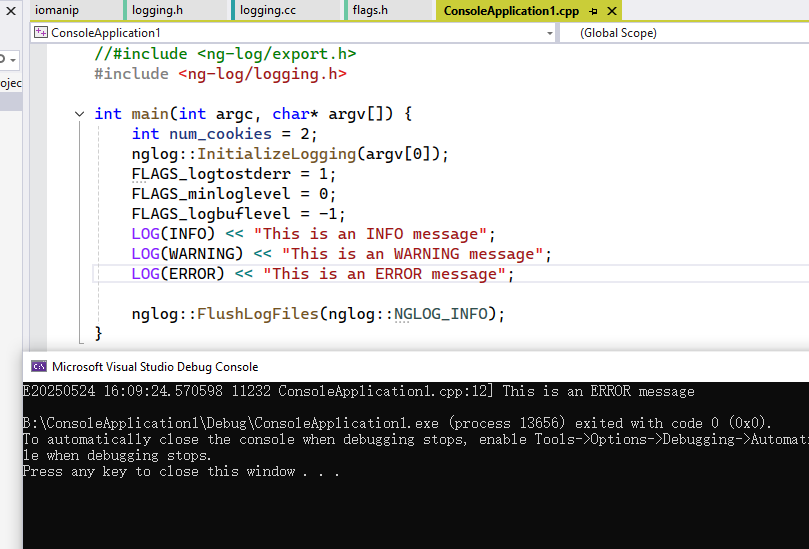Comparison of C++ logging libraries
2025年5月24日Requirements:
fine-grained log level control. In general, output WARNING level, but for some classes output INFO level.
Optional:
Escape newline characters.
Google glog
glog is no longer maintained. ng-log is a successor. Neither documentation is super comprehensive.
glog and ng-log do not natively support Visual Studio build system. If you don’t have gflags, create a build tree with
cmake -S . -B build -G "Visual Studio 17 2022" -A Win32 -DWITH_GFLAGS=OFF.
Nevertheless, I still failed to see INFO level logs.
spdlog
spdlog uses the fmt library for formatting. I am quite happy with C++20’s std::format. I don’t want to learn new formatting syntax.
choll xtr
xtr uses the fmt library for formatting.
ChristianPanov lwlog
lwlog has quite a number of obvious but minor bugs. What’s more, its support of C++ std::format is superficial. The execution path to std::format has never actually worked.[1]
SergiusTheBest plog
plog is easy to use. It requires no compilation. It uses the style of std::cout to write logs, and writes whatever std::format returns. Therefore I don’t have to learn new formatting syntax.
plog has a number of formatters. I mainly concern TxtFormatter. It does not support formatting patterns, and I must write a custom formatter if I want to change log formats. Luckly copying and modifying TxtFormatter is easy as pie.
You can create multiple logger instances with plog, each having a different instance id. Then you can write a custom formatter that converts the integer id to something meaningful.
I eventually choose plog because of its simplicity and ease to use.
References
- gqqnbig. Can't call std::format. . 2025-05-24 [].[↩]
